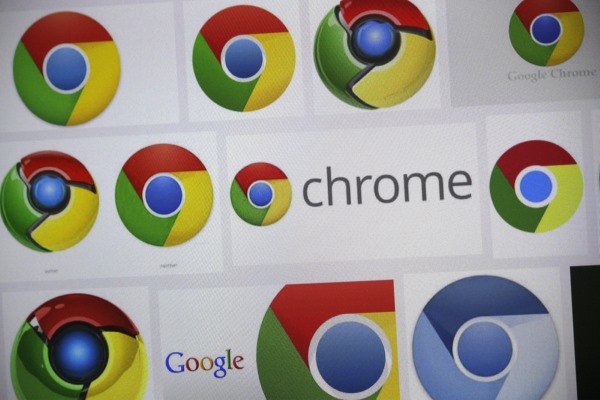
Google will block Flash in Chrome 53
Following the lead of Apple with Safari in macOS Sierra, and Mozilla with Firefox, Google has announced that Chrome will begin to block Flash content. Starting with Chrome 53 in September, Google will "de-emphasize Flash in favor of HTML5".
Google says that the decision has been made to improve security, performance, and battery life, and it builds on an earlier change that made some Flash content click-to-play rather than loading it by default.

Chrome 52 for Android massively reduces battery and data consumption by video
Google is pushing out Chrome 52 for Android, and the big news with this release relates to video. With video being such a massive component of internet traffic, it is perfectly natural for Google to focus on this area, and the company says that improvements have been made to battery consumption and loading times.
There is a marked shift of focus to speed and power efficiency -- compared to the desktop where the focus has long been quality over everything else.

Check internet speed and web page download times with Speedtest for Chrome
Speedtest is a free Chrome extension which allows testing your internet connection speeds and web page download time. It gives you access to the core of the Speedtest.net website in a click or two, wherever you are on the web.
Click Speedtest’s icon at any time and a panel appears. By default this displays the name of the currently displayed page, and the time it took to load.

How you might get hacked by a Chrome extension
Malware isn’t just about native executables or rogue apps, not any more -- a malicious browser extension can cause almost as many problems on all your devices at once.
With the right permissions, for example, your new Chrome add-on could steal your user credentials, post as you on social media, read your emails, help launch a DDoS attack, and more.

Create stylish coding snapshots with Marmoset
You’re building a website, presentation, maybe a CV listing your many coding skills, and would like some kind of graphic to illustrate that section. But what should it be?
Forget the usual clipart, install the Chrome app Marmoset instead, and it’ll help you create a stylish presentation-ready code snapshot in seconds.

Mozilla will block non-essential Flash in Firefox from next month
Flash is seen, quite rightly, as the scourge of the internet, and for some time there has been a vocal movement to eradicate all traces of it. Following the lead of Google Chrome and upcoming versions of Safari, Mozilla is taking the step of blocking Flash content from Firefox that is "not essential to the user experience".
It's part of the company's drive to reduce reliance on Flash, whilst recognizing that there is still a need to provide a degree of support for "legacy Flash content". Mozilla has taken the decision to ditch Flash in a bid to improve browser performance, boost security and improve battery life on mobile devices.
Microsoft badmouths Chrome's battery life as Windows 10 message urges switching to Edge
Microsoft has been shouting about Edge a lot as of late. Not happy with claiming that it is the most battery-friendly of the main web browsers, the company has also made much of Edge's 1080p support for Netflix.
In the latest twist, Microsoft switches tack, instead using pop up messages in Windows 10 to badmouth Chrome and promote Edge. The pop up rams home the idea that Chrome is a battery hog and suggests switching to Microsoft Edge to increase longevity.

Microsoft Edge is the best browser for Netflix -- the only that offers 1080p on the desktop
Internet Explorer has been much-maligned over the years, and Microsoft Edge sees the Redmond company trying to shake off the shackles of the past. Its latest marketing push finds Microsoft claiming that Edge is the best desktop web browser for Netflix viewing.
The reason? In addition to claims about greater battery efficiency, Microsoft's killer blow is that Edge is the only of the main desktop browsers to support 1080p viewing. It might seem like a surprising and audacious claim, but the test bears it out. Microsoft Edge has a serious unique selling point.

Inker is a promising vector graphics editor for Chrome
Vector graphics editors are often bulky desktop applications, aimed very much at design experts, but Inker is very different. The package is a simple Chrome app, easy enough for almost anyone to use, and ideal for creating quick vector designs on a tablet which you can then reuse elsewhere.
The drawing tools cover the basics only, with a freehand pen, rectangles, ellipses, and text.

Google adds a native Cast option to Chrome on the desktop
If you've been using a browser extension to add a casting option to Chrome, you could think about uninstalling it. Google is currently rolling out an update to the desktop version of its web browser.
The feature is making its way to Chrome 51 and can be accessed by right clicking either an open tab or the browser's hamburger menu. Should you ditch the extension, though? It really depends on your needs...

Facebook launches Share and Save extensions for Chrome, redesigns Social Plugin buttons
Facebook is all about sharing and consuming, and today the social network launches two new extensions for the Chrome browser that make it easy to do both. The Share to Facebook and Save to Facebook extensions do very much what you would expect, encouraging not only sharing, but also the use of Facebook as a bookmarking tool for articles you want to read later.
As well as these two extensions, Facebook is also rolling out redesigned Social Plugin buttons. The Like button that you see adorning so many websites is getting a modern makeover, losing the iconic Facebook 'f' logo, and gaining an emoji-lover-friendly thumbs up icon instead.

Chrome flaw makes it possible to copy DRM video streams such as Netflix
Security researchers from Ben-Gurion University Cyber Security Research Center (CSRC) have unearthed a vulnerability in Google Chrome that can be exploited to make copies of DRM-protected video streams. The problem affects all Chromium-based browsers, and makes it possible to circumvent Widevine encryption technology Google uses to secure streams.
Widevine has been used in Chrome for a while, after Google acquired it back in 2010. It has been used to prevent piracy of premium YouTube channels, and is also used to protect Amazon Prime and Netflix streams. Google was informed about the problem back in May, but is yet to issue a patch.

Opera says Microsoft's claims about Edge battery life are wrong -- but all's not as it seems
The other day, Microsoft made some bold claims about the power consumption of Edge. The company claimed that its latest web browser is the most battery-friendly when compared to Chrome, Opera and Firefox. Having been beaten into third place behind Chrome, but ahead of Firefox, Opera has hit back.
The company says that its own tests show -- surprise, surprise -- that it is Opera which is the most efficient battery sipper. Opera says that its own battery saving feature boosts battery life by up to 50 percent when compared to Chrome. The company criticizes Microsoft for failing to reveal its methodology, accusing it of a lack of transparency. But Opera is guilty of being disingenuous, as it fails to compare like with like.

Google Chrome is a Windows 10 battery vampire, and Microsoft Edge is the garlic
Windows 10 is a great operating system, offering a solid user interface and advanced security. The default browser, however, is not so great. Don't get me wrong, Microsoft Edge has a lot of potential, but Chrome is arguably the superior browser for now.
Google's browser is not perfect on Windows 10, apparently, as according to Microsoft, it is a battery vampire. In other words, Chrome -- as well as Firefox and Opera -- will drain your battery faster than the default browser. Using Microsoft Edge is like garlic to these vampires, as it can help you reclaim precious battery life.

Buffer overflow vulnerability in PDFium PDF reader affects Google Chrome
The name PDFium might not be immediately familiar, but if you're a Chrome user there's a high chance you're using it to view PDFs. The PDF viewer is built into Google's browser, and a vulnerability has been discovered in the jpeg2000 library which could allow for malicious code to be executed.
Unearthed by Aleksandar Nikolic from Cisco Talos, the heap buffer overflow vulnerability could be exploited by simply getting a user to open a PDF document with an embedded jpeg2000 image. The National Vulnerability Database entry warns that the security flaw affects versions of "Chrome before 51.0.2704.63 [and] allows remote attackers to cause a denial of service or possibly have unspecified other impact via a crafted PDF document".
